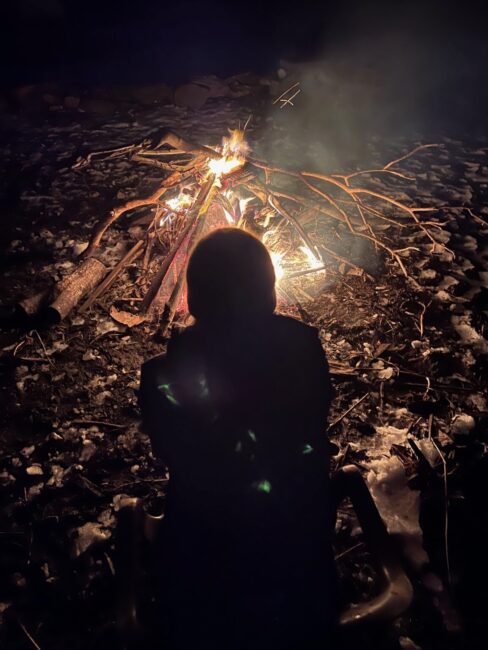Tonight, at 10:27, the winter solstice is here. The pagans (my wife is a pagan and a good witch, but don’t mess with her) had mixed feelings about the solstice, the astronomical beginning of winter.
Today is the shortest and darkest day of the year. And one of the coldest so far.
The pagans often feared the winter, but they celebrated the solstice because it marked when the farmers began to think about what they wanted to plant (or what flowers to buy.) Spring and planting (and gardening) are creeping ever closer.
They also understood that there is an excellent reason to celebrate the solstice. It’s time to think of warmth and color and prepare for it. Like the birds, squirrels, and chipmunks, the solstice marks when we have done all we can to prepare for the winter – the hay and wood are in the barn and the shed.
Every year, we light a fire in the barn. Maria has been piling up the wood in the pasture for months. We pull up two chairs and sit by the fire as close as possible to be warm. I usually come in before Maria, who will sit out there for hours while I bring her tea and maybe a glass of wine.
For me, the solstice also signals the coming of Christmas, celebrated worldwide. We honor Christmas in our way. It’s a time to celebrate life and help the needy. Even in our divided country, people try to be nicer to each other. We are bringing food to a community Christmas food program for the poor.
My job, as always, is to sit quietly, take pictures, bring food, and get her inside before she decides to spend the night. I think she would love to do that.
The bonfire is always beautiful, and it means a lot to us to be in touch with the farms of history when the solstice meant a great deal and inspired hope and courage for the months ahead.
The December solstice marks the beginning of astronomical winter in the Northern Hemisphere. During the solstice, the noon sun appears directly over the Tropic of Capricorn, a line of latitude 23.5 degrees south of Earth’s equator. It’s the southernmost point at which the sun can be seen straight overhead (90 degrees above the horizon).
White Eyes, by Mary Oliver
“In winter
all the singing is in
the tops of the trees
where the wind-bird
with its white eyes
shoves and pushes
among the branches.
Like any of us
he wants to go to sleep,
but he’s restless—
he has an idea,
and slowly, it unfolds
from under his beating wings
as long as he stays awake.
But his big, round music, after all,
is too breathy to last.”
“So, it’s over.
In the pine-crown
he makes his nest,
he’s done all he can.
I don’t know the name of this bird,
I only imagine his glittering beak
tucked in a white wing
while the clouds—
which he has summoned
from the north—
which he has taught
to be mild and silent—
thicken, and begin to fall
into the world below
like stars or the feathers
of some unimaginable bird
that loves us,
that is asleep now, and silent—
that has turned itself
into snow.”
- Mary Oliver, White Eyes
“Stopping By The Woods On A Snowy Evening
Whose woods these are? I think I know.
His house is in the village, though;
He will not see me stopping here
To watch his woods fill up with snow.
The little horse must think it queer
To stop without a farmhouse near
Between the woods and frozen lake
The darkest evening of the year.
He gives his harness bells a shake
To ask if there is some mistake.
The only other sound’s the sweep
Of easy wind and downy flake.
The woods are lovely, dark, and deep.
But I have promises to keep,
And miles to go before I sleep,
And miles to go before I sleep.
- Robert Frost


